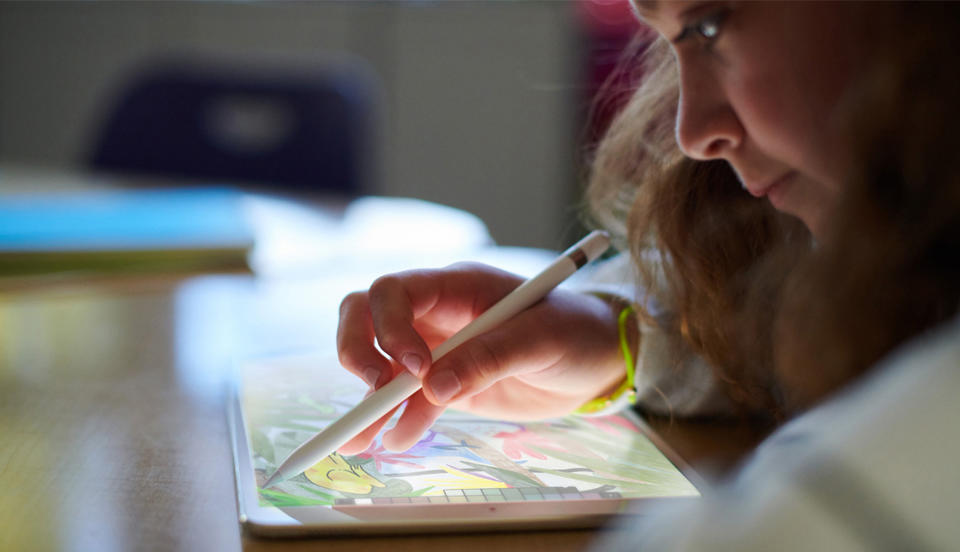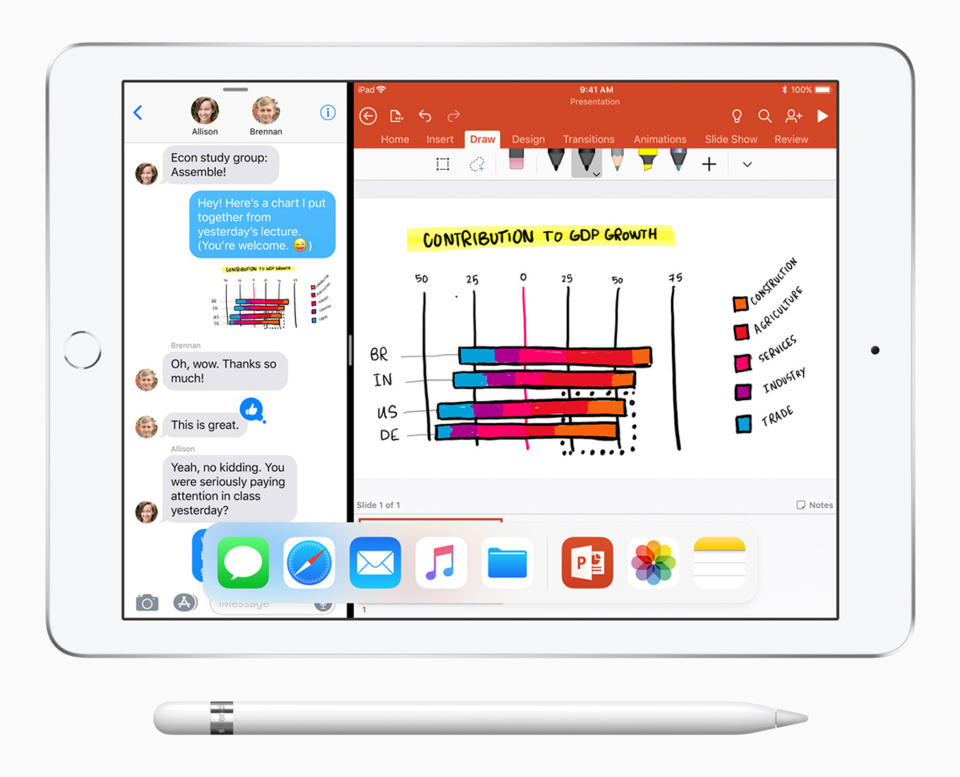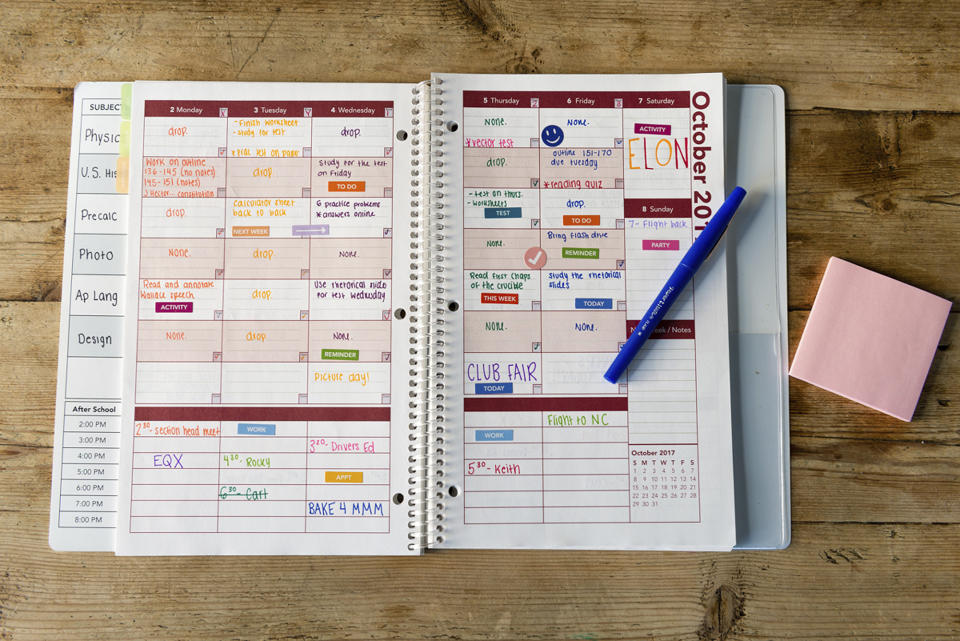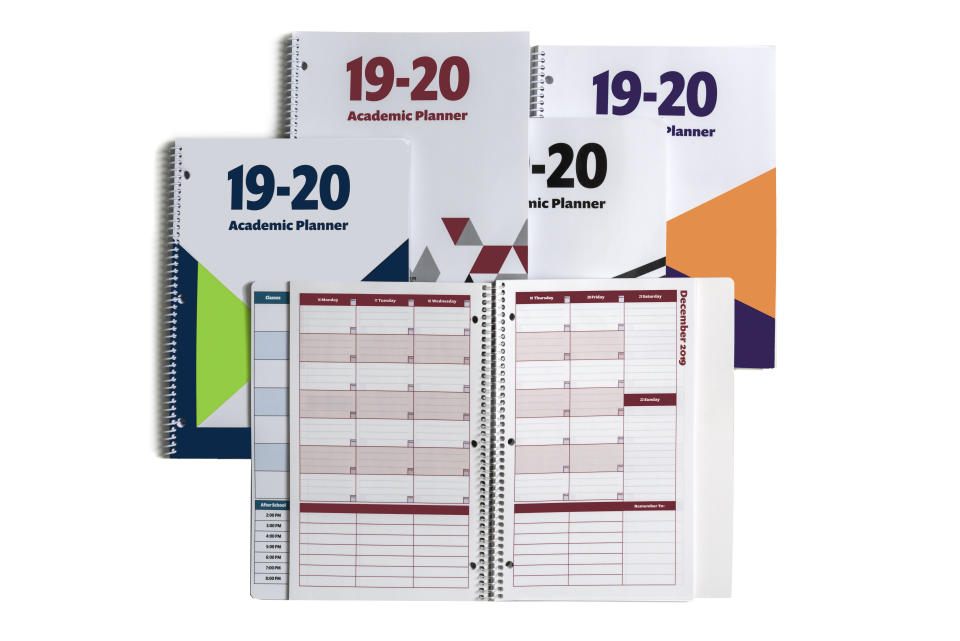Getting ready for high school: gear and strategies
Up through eighth grade, preparing for school is largely a question of checking off items from a recommended list of supplies.
Preparing for high school? That's something different that takes a little more thought and a lot more involvement by your teenager.
"High school is about setting kids up to be more independent, and schools often don't tell you specifically what supplies you need at this point," says Amy Tokos, a professional organizer who runs the Omaha, Nebraska-based Freshly Organized .
"It's a time when kids get to explore what they want to do, a time of trial and error, and more unstructured time. And it's important for families to remember the goal: It's for you to have a college student in four years who knows how to organize themselves and how to be successful at school," she says.
The right supplies matter. And beyond that, talk as a family this summer about strategies for doing well and feeling good in high school, the experts say. Time management and self-care, like getting enough sleep, for instance, seem to be among the big issues that come up early in high school.
GEAR:
Backpack: High schools are big and often kids don't use their lockers, so investing in a good backpack is important. It should be sturdy, with padded shoulders and places for pens and pencils, a calculator, and a padded section for a laptop or tablet. Avoid packs with wheels because that'll encourage kids to carry too much, says Tokos.
Electronics: Most high school kids will need some kind of laptop or tablet. Each school is different, so check with a school counselor about policies and recommendations, says Ellen Delap, a professional organizer based in Texas, who runs Professional-Organizer.com . And invest in a sturdy case for protection. "These things do break," she notes.
Planner: Even though many schools post assignments online, a paper planner helps kids visualize their days and weeks, say Delap. Leslie Josel, another organization pro, who runs the New York-based Order Out of Chaos , adds: "It's not just about long- and short-term assignments, it's also about managing when that work can be done amid sports and clubs and all the other activities that come up." She has devised a planner that includes places to list afterschool activities as well as assignments and tests.
Filing system: It sounds big and overwhelming, but having a system in place can be super valuable once volunteer forms, subject study guides and college information all start rolling in, says Tokos. Get a file box that holds about 12 hanging files and is open on top, so your student can keep it in their bedroom or study area, she says.
Papers, binders and plastic sheet protectors: Every kid is different and by high school lots of kids know what works for them in terms of notebooks and binders. But it may take some trial and error figuring out what works best in ninth grade, says Tokos. Josel recommends a binder with an accordion folder section, and plastic protector sheets for crucial papers like that Spanish verb list or the periodic table. Delap recommends binders with slash pockets, where papers can be filed quickly. She and Josel both recommend color coding binders or folders by subject.
Extras: Josel urges families to consider getting headphones for their kids, because she says they often help kids study better. Sometimes ambient sounds or music (though not new music, she says) helps them focus. Kids can get busy now putting together a playlist for every subject, timed for around a half hour to 45 minutes, so they focus for that long on a subject, and then take a short break before starting in on the next one. She also suggests a portable, three-sided privacy shield that kids can use while working at the kitchen or dining room table to avoid distractions and prying eyes.
HELPFUL CONVERSATIONS:
Parents should focus on asking, not telling, the experts say, and make sure kids are involved in selecting their gear and figuring out the ground rules and systems they'll need.
Study plan: Josel recommends helping kids think about how they study best, before the deluge of high school assignments. Her "personal homework profile" sheet, available free at orderoochaos.com, asks kids where and when they study well, for instance, and whether they do better working under the pressure of a tight deadline or incrementally over time.
Screens: Get everyone involved in coming up with ground rules the whole family can live with regarding screen time. Tokos recommends designated "power hours" with no electronic distractions for 45 minutes at a time so kids can focus on homework, allowing a 15-minute break at the end so kids can check their phone if they'd like, before focusing once again on their work. And begin a no-screens-in-the-bedroom policy well before school starts, says Delap.



